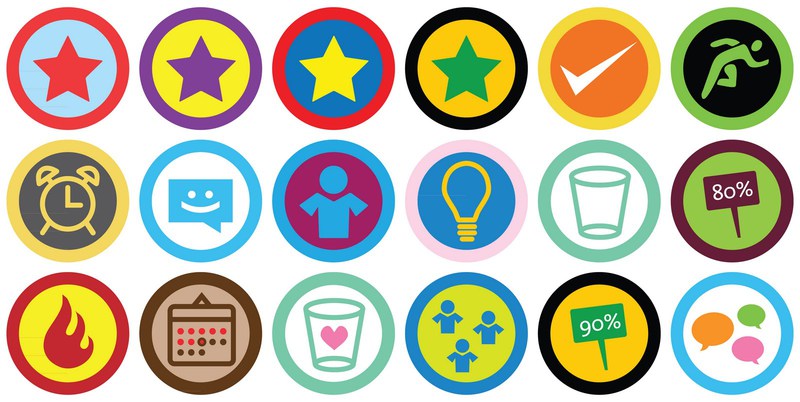Gamification has become a hoax
After takeoff, a fall always happens. Gamification is a universal term used to refer to awards, promotions, etc. - has become a very popular way to attract users in an increasingly noisy world of applications. In a new study , Gartner says that many applications using this technique become noise themselves: company analysts said that by 2014, 80% of all applications using gamification would not be able to do what they should.
So what's the problem? As Gartner's vice president of research, Brian Burke, said, it's all about the bad design: companies / developers spend too much time on such little things as glasses and badges, forgetting about creating really meaningful motivations and goals. If there is no last, the first immediately loses all meaning.

')
This does not mean that this technique is inoperable, or Gartner considers gamification a bad idea. :
Gamification has become a swindle that has already reached its peak. A little more, and everyone will be disappointed in her.
If this prediction is correct, startups and large companies using these social techniques should not expect anything good. Among the companies that have implemented gamification in their business models are, for example, the same Foursquare, SCVNGR and shopkick. There are also those who allow others to integrate gamification elements into third-party applications. These are Badgeville, BigDoor and Bunchball. According to Gartner's calculations, for every application like Nike + (Burke called it one of the really successful products using this technique), there are 7-8 people who urgently need to change something if they want to succeed.
Interestingly, instead of changing goals in gamification platforms, we see consolidation and transformation.
Foursquare is no longer focused on registrations and mayoralties. Now it offers purely information services and competes more with Yelp. However, this strategy raises many questions about what difficulties the company is facing and whether it is not overestimated, because, it is reported, it is going to look for additional funding in the amount of another $ 50 million.
Meanwhile, Gowalla, also specializing in making game elements, was recently bought by Facebook, although it was only about three million. The consolidation is not likely to end there: some predict that gamification platforms will soon be bought by companies selling their services to brands and businesses.
Despite the fact that consumer applications are most visible, we should not forget about the trend of consumerisation in corporate services. Businesses have become one of the main consumers of gamification and, according to Gartner, by 2015 about 40% of organizations from the Global 1000 will use game elements to encourage their employees to be more productive.
So what's the problem? As Gartner's vice president of research, Brian Burke, said, it's all about the bad design: companies / developers spend too much time on such little things as glasses and badges, forgetting about creating really meaningful motivations and goals. If there is no last, the first immediately loses all meaning.

')
This does not mean that this technique is inoperable, or Gartner considers gamification a bad idea. :
I have a positive attitude to gaming itself, just in pursuit of it, developers often miss opportunities and do not justify user expectations. They are just doing their job badly, ”Burke said. - You can not just hang icons on anything and think that now everything will work.
Gamification has become a swindle that has already reached its peak. A little more, and everyone will be disappointed in her.
If this prediction is correct, startups and large companies using these social techniques should not expect anything good. Among the companies that have implemented gamification in their business models are, for example, the same Foursquare, SCVNGR and shopkick. There are also those who allow others to integrate gamification elements into third-party applications. These are Badgeville, BigDoor and Bunchball. According to Gartner's calculations, for every application like Nike + (Burke called it one of the really successful products using this technique), there are 7-8 people who urgently need to change something if they want to succeed.
Interestingly, instead of changing goals in gamification platforms, we see consolidation and transformation.
Foursquare is no longer focused on registrations and mayoralties. Now it offers purely information services and competes more with Yelp. However, this strategy raises many questions about what difficulties the company is facing and whether it is not overestimated, because, it is reported, it is going to look for additional funding in the amount of another $ 50 million.
Meanwhile, Gowalla, also specializing in making game elements, was recently bought by Facebook, although it was only about three million. The consolidation is not likely to end there: some predict that gamification platforms will soon be bought by companies selling their services to brands and businesses.
Despite the fact that consumer applications are most visible, we should not forget about the trend of consumerisation in corporate services. Businesses have become one of the main consumers of gamification and, according to Gartner, by 2015 about 40% of organizations from the Global 1000 will use game elements to encourage their employees to be more productive.
Source: https://habr.com/ru/post/160437/
All Articles